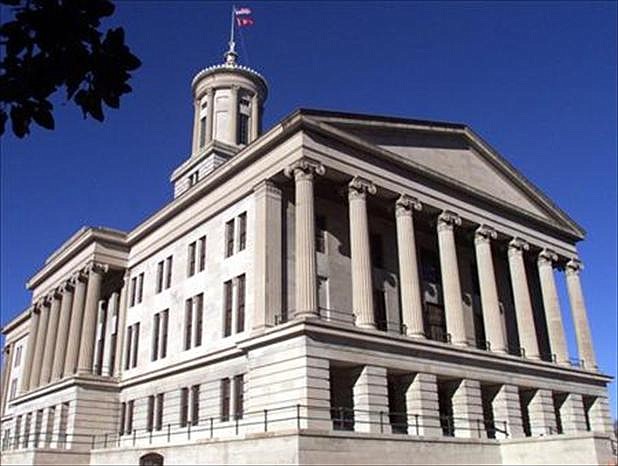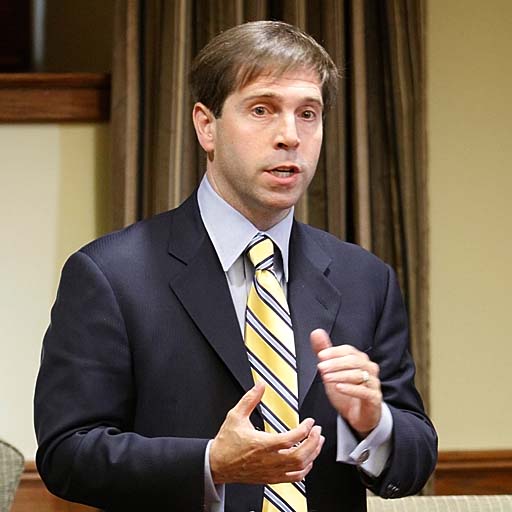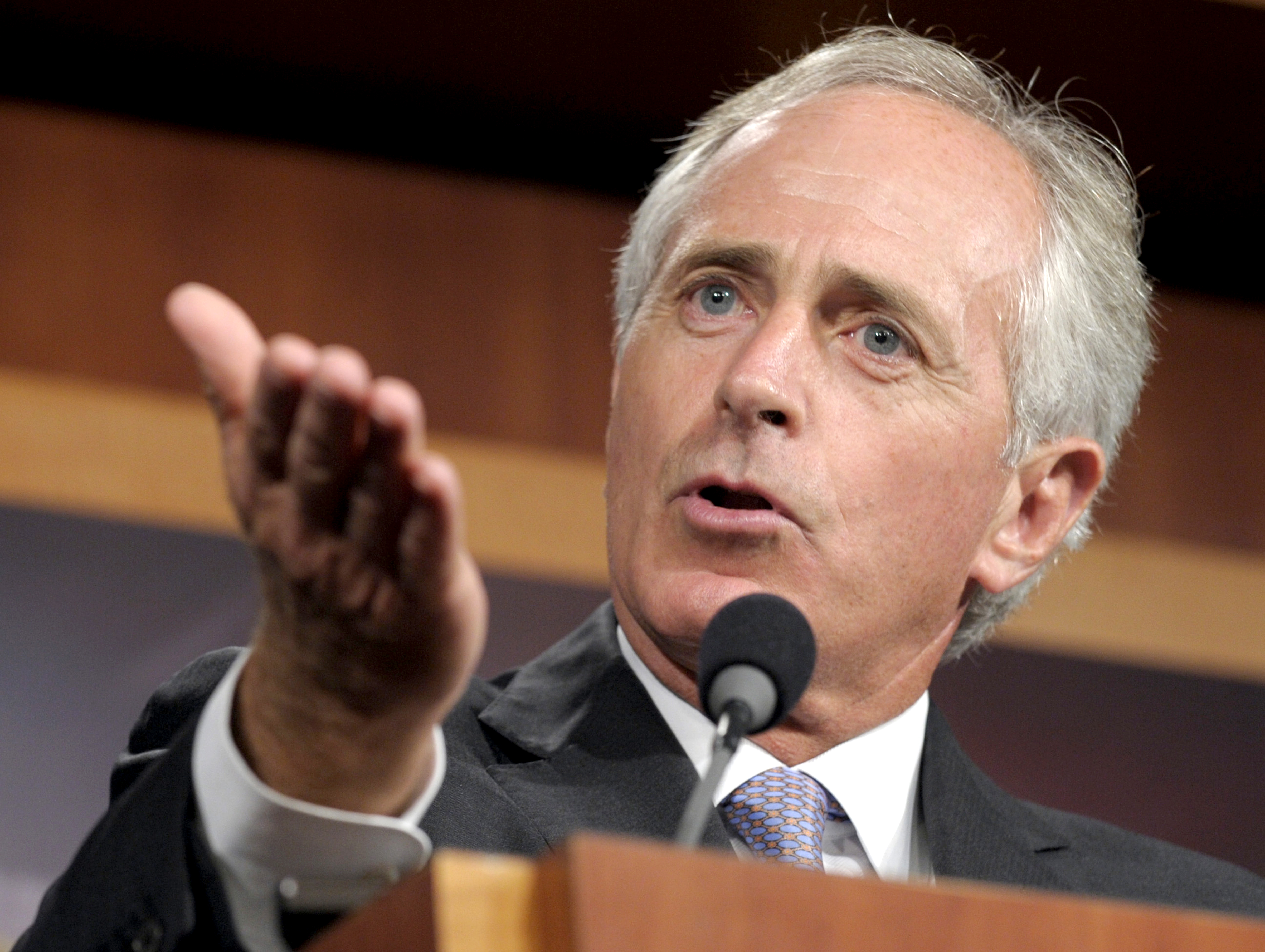NASHVILLE-Regardless of how the debt-ceiling fight is resolved, there's a consensus that the upshot of this year's budget wars is less spending by Uncle Sam.
That's likely to have a major impact on states such as Tennessee, where federal spending is often derided even as state government, U.S. installations and residents themselves profit from it.
"I really do think that regardless of how this gets resolved, the federal government is going to be sending out less money," Tennessee Gov. Bill Haslam said last week. "And as a state where about 40 percent of our revenue roughly comes from the federal government, we'll feel it."
Though Haslam expects what he calls a "big impact" on Tennessee, he still supports curbing federal spending.
"The reality is that as a country we're spending more than we're bringing in. And that can't keep going," he said.
Make no mistake, though: Tennessee and Tennesseans benefit from Washington spending in any number of ways.
"Complaints in Tennessee about the federal government's spending are like cutting your nose off to spite your face," observed Dick Williams, chairman of Tennesseans for Fair Taxation, which advocates for state tax reform.
For example, Tennessee's $8.9 billion TennCare health care program for the poor is propped up with $5.8 billion in federal funds, according to TennCare Bureau figures.
In fact, Uncle Sam is shouldering about 39.2 percent -- or $12.1 billion -- of the current $30.8 billion state budget, according to the General Assembly's Office of Legislative Budget Analysis website.
Senate Finance Committee Chairman Randy McNally, R-Oak Ridge, has pegged the percentage even higher, at 44 percent.
Getting back
Some of that is the last of federal stimulus funds, part of President Obama's effort to jump-start the nation's economy during the Great Recession. The federal stimulus was approved in February 2009.
About $3.1 billion a year goes to the federal complex in Oak Ridge -- Oak Ridge National Laboratory, Y-12 National Security Complex and related sites, U.S. Energy Department officials say.
Tennessee-based federal contractors were paid $10.2 billion, according to the U.S. Census Bureau's Consolidated Federal Funds Report for fiscal 2009.
And don't forget $20.38 billion Tennesseans collected in fiscal 2009 for Social Security and other retirement and disability programs, according to the Federal Funds Report.
All in all, Uncle Sam coughed up $68.54 billion in Tennessee during fiscal 2009, according to the report.
That was $10,886.77 for each man, woman and child that year, ranking Tennessee high in terms of federal per capita spending.
Over the years, Tennessee has been among 30 or more "beneficiary states" that get back more money from the federal government than they send in taxes.
In fiscal 2005, Tennesseans got $1.27 back from Washington for every dollar sent in by residents or Tennessee-based companies and groups, according to a study by the Washington-based Tax Foundation. All told, Tennessee sent in $35.87 billion that year and got back $48.28 billion in return, the study says.
University of Tennessee economist Matt Murray said that's because Tennessee is a relatively poor state with a large federal presence.
"Because we're low in an income sense, we pay relatively less in taxes, and because of our relatively lower average income we tend to get back more from the federal government for programs like TennCare and Families First," Murray said.
So shrinking U.S. spending could hurt Tennessee proportionately more than most states, Murray said, depending on what programs are cut.
Red and blue
Tad DeHaven, a budget analyst with the Cato Institute, a Washington-based think tank advocating limited government and free markets, said the public should get one thing straight: The hotly debated "cuts" are not actual reductions in spending.
"I would say what they [Washington officials] are talking about is reducing the growth in spending," he said. "Spending is going to increase, just not as fast as projected."
DeHaven said few specific programs have been identified for cuts, although entitlements are likely targets because programs like Medicare and Social Security are such a large share of spending.
The analyst is amused by the Tax Foundation's 2005 findings.
"I've always thought it was kind of funny that a lot of the states benefiting have been red [Republican] states, mainly [Democrats] from blue states subsidizing red states," he quipped.
Nicholas Johnson, with the liberal-leaning Center for Budget and Policy Priorities, doesn't agree often with the Cato Institute. But he, too, finds it funny that conservative states, often in the South, do so well from a federal government that their politicians often denounce.
"The ironies abound," he observed.
Local exceptions?
U.S. Sen. Bob Corker, R-Tenn., is in the thick of the debt-ceiling fight and efforts to slash federal spending
The former Chattanooga mayor points out no decisions have been made about what will be cut, so it's hard to judge the adverse impact on Tennesseans.
"There's no question that Washington has been involved in far too many things it has no business being involved in, and spending too much on too many things," Corker said. " That's beyond debate."
Federal spending as a share of the economy is at its highest level since World War II, Corker said, adding, "everyone knows that has to change."
Freshman U.S. Rep. Chuck Fleischmann, R-Tenn., predicted "long overdue" cuts ahead.
He disagrees with President Obama and Democrats who say tax increases need to be part of the budget fix.
"We have a spending problem and not a revenue problem and that has become so abundantly clear," Fleischmann said. "The reality is we're going broke."
Still, neither Fleischmann nor Corker is excited about the prospect of cutting spending in areas such as the Oak Ridge National Laboratory.
"Actually, Oak Ridge is one of the great labs in our country. It's the best lab east of the Mississippi," Corker said.
He said there is a lot of "overlap" among the national labs, adding, "If you let us compete fairly we know we're going to do so."
Fleischmann wasn't ready to drop federal funding to replace the lock at TVA's Chickamauga Dam, but he called for reform of the Inland Waterways Trust Fund, a user-fee fund which helps pay for specified projects.
Health at risk
Corker acknowledged that Medicaid, the federal/state health-care program for the poor, is likely to see cuts. But the former state finance commissioner said he also expects Tennessee and other states to be granted more flexibility in how they manages their programs.
Tennessee health care providers and advocacy groups last week took out newspaper ads asking the state's congressional delegation and state officials to exercise care in making cuts in health spending.
State Finance Commissioner Mark Emkes said he has been warning state legislators and virtually everyone else "every chance I get" about what is coming.
"If they [federal officials] get their act together and they cut state spending, it will not be a trickle-down for the states. It will be a smackdown," Emkes said.
"That's why I preach every moment we need to increase the Rainy Day [emergency fund]. We need to increase the TennCare reserve fund because ... if they cut spending, we're going to feel it there."
As legislators wrestled over the state budget this year, Emkes said, some lawmakers urged him to dip further into the state's reserve funds.
"With all due respect," Emkes said, "that's what's gotten the United States government in this issue -- that spend, spend, spend. Spend stuff you don't have."
Staff Writer Dave Flessner contributed to this report.


